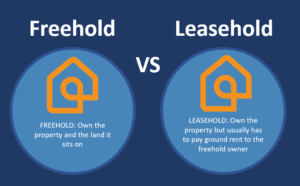Best Conveyancing Solicitors Quotes in 2023
Navigating the world of conveyancing can be daunting, especially when it comes to getting the best quotes. With the year 2023 bringing new challenges and opportunities, it’s more important than ever to ensure you’re getting the best deal possible. In this blog post, we’ll guide you through everything you need to know about conveyancing solicitors quotes, from understanding the types and factors affecting them, to comparing and obtaining the best quotes for your specific needs.
Short Summary
- Comparing conveyancing quotes requires understanding legal fees, disbursements and other costs.
- Engaging a property solicitor or licensed conveyancer is essential for expert guidance throughout the process.
- Open communication, timely responsiveness and preparation of necessary documents are key to a successful experience.
Understanding Conveyancing Solicitors Quotes
Conveyancing fees are essential when buying, selling, or remortgaging a property, as they cover the legal costs associated with the transaction. Solicitors and licensed conveyancers provide the necessary legal services to facilitate the conveyancing process, and their fees can range from £750 to £1,800. However, the conveyancing costs may vary depending on the complexity and specific requirements of the property sale, as well as the experience of the conveyancing solicitor. Therefore, comparing conveyancing quotes is crucial to getting the best deal and ensuring your property transaction goes smoothly.
To effectively compare conveyancing quotes, it’s essential to understand the types of quotes available and the factors that affect them. This includes the legal fees, disbursements (third-party costs), and any additional fees that may be relevant to your property transaction. Moreover, it’s important to verify that the quotes are comparable and that all elements are included to guarantee a fair comparison.
Get an Instant Quote >>Types of Conveyancing Quotes
There are two main types of conveyancing quotes: fixed fee and hourly rates. Fixed fee quotes provide a predetermined fee for the entire conveyancing process, while hourly rate quotes are calculated based on the solicitor’s or licensed conveyancer’s time spent on the case. Both types of quotes usually include legal fees paid to the solicitor or licensed conveyancer, as well as disbursements, such as Stamp Duty Land Tax and property searches.
By understanding the differences between these types of quotes, you can make a more informed decision when comparing conveyancing quotes.
Factors Affecting Conveyancing Quotes
Several factors can influence conveyancing quotes, including outstanding debts or charges on the property, changes in the sale price, legal fees and disbursements, required property information documents, local issues, land registration fees, and demand for services. For instance, a property located near a river or an area that has been mined may require additional searches and legal work, which can affect the overall conveyancing cost.
Therefore, it’s essential to consider all these factors when comparing conveyancing quotes to ensure that you’re getting the best possible deal for your specific property transaction.
Comparing Conveyancing Solicitors
When it comes to choosing the right professional to handle your property transaction, it’s crucial to compare both solicitors and licensed conveyancers, as they offer different levels of expertise and specialization in the conveyancing process. While both are fully regulated and insured, ensuring a consistent application of conveyancing practices and procedures, there are some key differences between the two that you should be aware of when comparing conveyancing quotes.
In order to make the best decision for your property transaction, it’s important to consider the familiarity of the experienced conveyancing solicitors with the area, their recommendations, and their level of experience in handling conveyancing cases. Moreover, maintaining open communication and timely responsiveness with your chosen professional is essential for a successful conveyancing experience.
Get an Instant Quote >>Licensed Conveyancers vs. Solicitors
Licensed conveyancers and solicitors are both qualified legal professionals that specialize in the legal aspects of purchasing and selling property. However, solicitors possess a broader comprehension of property law in general, while licensed conveyancers specialize in the documentation, contracts, and finances related to property transactions.
By choosing a conveyancer regulated by the Council for Licensed Conveyancers (CLC), you can ensure that they are experts in property law and adhere to stringent standards of professionalism and ethics. This distinction is crucial when comparing conveyancing quotes and selecting the right professional for your specific needs.
Tips for Choosing the Right Conveyancer
When selecting a conveyancer, it’s important to compare quotes from multiple solicitors, evaluate the type of conveyancing service offered (such as residential or commercial conveyancing), and be aware of any potential hidden costs and additional fees. Additionally, it’s advisable to read reviews from previous clients to gain insight into the quality of service the conveyancer offers and their level of expertise in handling similar property transactions.
By following these tips, you can ensure that you’re choosing the best conveyancer or solicitor for your specific property transaction.
Obtaining Residential Conveyancing Quotes
There are several ways to obtain residential conveyancing quotes, including online platforms and directly contacting conveyancing solicitors. Both methods offer their own advantages, with online platforms providing instant comparisons and easy instruction of chosen professionals, while direct contact allows for a more personalized approach and the opportunity to discuss your specific property transaction in detail.
By exploring various options to acquire conveyancing quotes, you can save both time and money and ensure that you’re getting the best possible deal for your residential conveyancing needs. Moreover, it’s essential to be well-informed about the conveyancing process and the different types of quotes available, so you can make the best decision for your property transaction.
Directly Contacting Conveyancing Solicitors
Directly contacting conveyancing solicitors is another way to obtain residential conveyancing quotes. By reaching out to solicitors through their contact information (usually available on their website), you can discuss your specific property transaction in detail and get a personalized quote. Before making contact, it’s important to research the solicitor’s credentials and experience in conveyancing to ensure a smooth and successful transaction.
Obtaining quotes from multiple solicitors can help you evaluate prices and services, and identify the most suitable option for your requirements. This approach allows for a more personalized experience and the opportunity to build a rapport with your chosen professional.
Hidden Costs in Conveyancing Quotes
When comparing conveyancing quotes, it’s important to be aware of any hidden costs that may not be included in the initial quote. These can include disbursements (third-party costs) and additional fees related to the conveyancing process. By ensuring transparency in quotes and asking for a breakdown of all fees, you can avoid any unexpected costs during the process and ensure that you’re getting the best possible deal.
In order to ensure transparency in conveyancing quotes, it’s essential to verify that all fees, including disbursements and additional fees, are explicitly stated in the quote estimate. This includes any costs associated with searches, bank transfers, stamp duty, and other relevant fees. Additionally, it’s recommended to request a breakdown of all fees and to verify that all fees are included in the quote to avoid any surprises during the conveyancing process.
Disbursements and Additional Fees
Disbursements refer to expenses that the solicitor pays on behalf of the client, such as court fees, search fees, and land registry fees. Additional fees may include legal advice fees, document preparation fees, and administrative fees. It’s essential to be aware of these potential costs when obtaining a conveyancing quote, as they may not be included in the initial quote and could affect the overall conveyancing cost.
By understanding disbursements and additional fees, you can ensure transparency in your conveyancing quotes and avoid any unexpected costs during the process.
Ensuring Transparency in Quotes
To ensure transparency in conveyancing quotes, it’s essential to follow the Solicitors Regulation Authority (SRA) transparency rules, which require firms to provide prices and service information for conveyancing quotes. These rules help ensure that individuals have access to accurate and relevant information when considering the purchase of legal services from a solicitor or firm.
By thoroughly reviewing the terms and conditions of any conveyancing quote and ensuring that all fees are explicitly detailed in the quote estimate, you can avoid any unexpected costs and ensure a smooth conveyancing experience.
The Conveyancing Process Explained
The conveyancing process refers to the legal process of transferring ownership of a property from a seller to a buyer, as well as the associated administrative work. It begins when an accepted offer is made on a property and concludes when all associated contracts have been signed and all payments have been finalized. Engaging a property solicitor or licensed conveyancer to provide conveyancing services during the conveyancing process is critical, as it can be complex and requires expert guidance. Payment of searches and any other disbursements will need to be made as they become due during the process, with the remaining funds, including legal fees, requested when the conveyancer is able to proceed to exchange.
The conveyancing process consists of several stages, including the pre-contract stage, the exchange of contracts stage, and the completion and post-completion stages. Each stage involves different tasks and responsibilities for both the buyer and the seller, as well as their respective conveyancers or solicitors.
Pre-Contract Stage
During the pre-contract stage, the buyer’s conveyancer reviews the contract pack, raises pre-contract enquiries, conducts necessary searches (such as local authority searches, environmental searches, and water and drainage searches), and obtains the mortgage offer. This stage also involves drafting contracts, which contain pertinent information such as price, boundaries, planning restrictions, completion date, and an energy performance certificate.
Negotiations may also occur during this stage, determining the completion date, the deposit amount, and any other conditions that may be specified in the contract.
Exchange of Contracts
The exchange of contracts stage is when both the buyer and seller become legally bound to complete the transaction. It involves the solicitors of both parties exchanging signed contracts, at which point the buyer typically pays a deposit, usually 10% of the purchase price.
Following the exchange of contracts, both the buyer and seller are obligated to finalize the transaction, with the buyer organizing for the remaining balance of the purchase price to be paid to the seller on completion day.
Completion and Post-Completion
Completion is the concluding stage of the conveyancing process, where the seller vacates the property and the buyer’s conveyancer dispatches the proceeds of sale to the seller’s conveyancer. Post-completion is the stage following completion, wherein the conveyancer arranges for the payment of any Stamp Duty and the registration of the new owner with the Land Registry.
By understanding each stage of the conveyancing process, you can ensure a smooth and successful property transaction.
Tips for a Smooth Conveyancing Experience
A smooth conveyancing experience is crucial for a successful property transaction, and there are several tips that can help you achieve this. First, maintaining open communication and timely responsiveness with your conveyancer or solicitor is essential. This includes updating them on any changes in your circumstances, such as modifications in your financial position or delays in the process, and being available to answer any questions they may have.
Second, preparing necessary documents and information is vital for streamlining the conveyancing process and avoiding delays. This involves collecting the required documents, monitoring due dates, and ensuring the accuracy of paperwork.
By following these tips and staying organized throughout the conveyancing process, you can help ensure a smooth and successful property transaction.
Communication and Responsiveness
Effective communication and responsiveness are essential for a successful conveyancing experience, as they foster trust, ensure clarity, and enable a smooth transaction. To maintain open communication and responsiveness with your conveyancer or solicitor, it’s important to notify them of any alterations in your circumstances, such as modifications in your financial position or any delays in the process.
Additionally, it’s crucial to be available to answer any queries they may have and to respond to their correspondence promptly. By maintaining open communication, you can help ensure a smooth conveyancing experience.
Preparing Necessary Documents
To ensure a successful conveyancing experience, it’s important to prepare the necessary documents and information required for the process. These include proof of identity, proof of address, transfer deed, title deeds, property information form, fittings and contents form, warranties, and stamp duty receipt. These documents can be obtained from the seller, the buyer, the lender, and the conveyancer.
By being familiar with the contents of these documents and providing them promptly to your conveyancer, you can help streamline the conveyancing process and avoid any potential delays.
Summary
In conclusion, obtaining the best conveyancing solicitors quotes in 2023 requires understanding the types of quotes available, the factors affecting them, and the conveyancing process itself. By comparing conveyancing quotes, being aware of hidden costs, and maintaining open communication with your chosen professional, you can ensure a smooth and successful property transaction. So, whether you’re buying, selling, or remortgaging a property, take these tips into consideration and make an informed decision when choosing the right conveyancer or solicitor for your needs.
Frequently Asked Questions
What is the average cost of conveyancing fees UK?
On average, UK conveyancing fees can be expected to range from £800 to £2,000, with leasehold properties usually being more expensive than freehold ones.
How do you get conveyancing quotes?
Get your conveyancing quotes in three easy steps – simply tell us about your property, receive instant online quotes and pick one of the firms from our panel to instruct.
Get started today!
What is the difference between fixed fee and hourly rate conveyancing quotes?
Fixed fee quotes provide a predetermined fee for the entire conveyancing process, while hourly rate quotes are calculated based on the time spent on the case by the solicitor or licensed conveyancer.
This type of fee structure can be beneficial for both the client and the solicitor, as it allows for a more accurate budgeting of the costs associated with the conveyancing process. It also allows the solicitor to be more transparent about their fees and the services they provide.
What factors can influence conveyancing quotes?
Outstanding debts or charges, changes in sale price, legal fees and disbursements, property documents, local issues, land registration fees, and demand for services all contribute to conveyancing quotes.
How can I obtain residential conveyancing quotes?
You can obtain residential conveyancing quotes by comparing services online or by directly contacting solicitors to discuss your needs.
Get an Instant Quote >>





